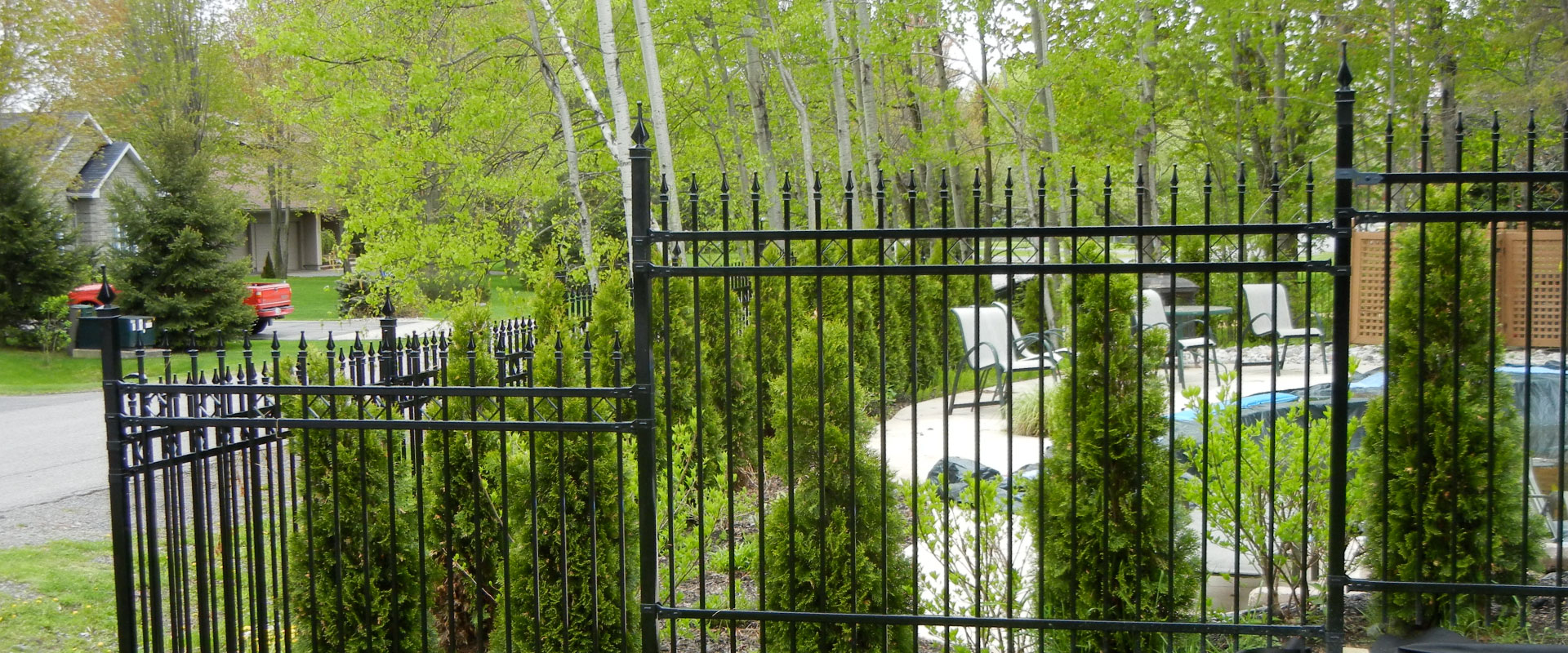All Categories
Featured

Picking the right fencing product is important for achieving the balance of longevity, aesthetic appeals, and functionality that matches your building. Wood, vinyl, and aluminum are prominent selections, each with distinct features that deal with certain demands. Right here's an extensive appearance at the advantages and drawbacks of these three products.
Timber Fencing. Pros:. Timeless Appeal: Wood provides a natural, traditional look that enhances different architectural designs. Adjustable: It can be painted or tarnished in a selection of layouts and colors. Cost effective: Wood fencings are frequently cheaper ahead of time than vinyl or light weight aluminum. Eco-Friendly: As a sustainable source, timber is naturally degradable and sustainable when sourced sensibly. Cons:. Maintenance-Intensive: Needs regular discoloration, painting, or securing to secure versus weather condition and pests. Much Shorter Life-span: Depending upon the kind of timber and climate, it normally lasts 10-15 years. Susceptability to Damage: Prone to decomposing, bending, and termite damages without proper treatment. Wood is perfect for house owners who value appearances and are eager to spend effort and time in upkeep to extend its life.
Plastic Fence. Pros:. Sturdy: Resistant to parasites, rot, and weather condition, plastic preserves its structure in harsh conditions. Low Maintenance: Needs little upkeep past occasional cleansing. Long Life-span: Plastic can last 20-30 years without considerable wear or damages. Versatile Layouts: Offered in various colors, appearances, and styles, consisting of choices that simulate timber. Cons:. Costly Setup: Vinyl fencings are a lot more costly to install compared to wood. Fragile in Cold Weather condition: Vinyl can break in severe cool environments. Difficult to Repair service: If damaged, whole sections may require substitute, which can be challenging to match. Vinyl fence is a great choice for those focusing on long life and marginal upkeep, also if it includes a higher ahead of time cost.

Aluminum Fence. Pros:. Rust-Resistant: Aluminum does not rust, making it suitable for wet or damp locations. Solid but light-weight: Offers toughness without being extremely hefty, which simplifies installment. Low Upkeep: Needs bit even more than cleaning and periodic repainting. Long life: Aluminum fencings can last for decades without significant degeneration. Classy Layouts: Frequently used for attractive purposes, light weight aluminum includes elegance to any kind of building. Cons:. High Preliminary Expense: Light weight aluminum fencings are amongst the much more expensive alternatives. Restricted Personal privacy: Often designed with open rooms, they do not obstruct sights or noise. Vulnerable to Dents: While tough, light weight aluminum can be dented or bent with hefty impact. Light weight aluminum is finest fit for those that want a long-lasting, fashionable fence and don't need full privacy.
Making the Right Selection. Each material has its toughness and weaknesses:

Wood is ideal for eco-conscious buyers and typical visual appeals who do not mind maintenance. Plastic helps homeowners seeking a weather-resistant, low-maintenance remedy. Aluminum is a resilient, decorative choice for those that desire style and durability. Consider your top priorities-- whether it's cost, look, personal privacy, or maintenance-- and seek advice from a secure fencing expert to select the product that best meets your requirements. A well-selected fence will certainly enhance your property for many years to come.
Latest Posts
Discover Exclusive Auto Repair Specials in Chicago at Montclare Auto Repair
Published en
1 min read
Take Advantage of Special Auto Repair Offers in Chicago at Montclare Auto Repair
Published en
1 min read
Find Outstanding Car Repair Services at Montclare Auto Repair – Drive with Confidence
Published en
1 min read
More
Latest Posts
Discover Exclusive Auto Repair Specials in Chicago at Montclare Auto Repair
Published May 29, 25
1 min read
Take Advantage of Special Auto Repair Offers in Chicago at Montclare Auto Repair
Published May 25, 25
1 min read
Find Outstanding Car Repair Services at Montclare Auto Repair – Drive with Confidence
Published May 24, 25
1 min read